|
It's not the showy florets of the hydrangea that carry on the life of the plant, but when someone says, "hydrangea blossom" that's what almost always comes to mind.. And why not? Mounds of watercolor shades ripple with undulating hues. Complex tints tinge shadow with rainbow light. I'm looking out the window as I write, enjoying hillocks of blue beneath the trees in front of our house. I love what I can see. But what I can see is only a small part of the story. It's really the tiny hydrangea flowers that are fertile, capable of taking the work of the hydrangea to the next generation. These little stars are beautiful in their own right, but they're small enough and inconspicuous enough that they're often overlooked. They're dwarfed by the richly-colored florets, their sterile counterparts. Which part of the flower is more important? That's hard to say, because each fills a special role in the life of the hydrangea. Frankly, I probably wouldn't grow many hydrangea plants if they bore only tiny, almost insignificant star-flowers. But then, the hydrangea family wouldn't have grown to what it is today—and might have died out entirely—if there were only colorful, sterile florets. What's most important to God? That's a little like asking whether he likes brown hair better than blond or gray. He made them each for a purpose—and their individual beauties shine brightest when their purposes are most fully realized. Perhaps it's best to simply ask, "Am I fully living the purpose of God for me?" I'm thinking a lot about purpose these days as Melis and I wrestle with the question, "Where to now, Lord?" Last week, she challenged me to write up my purpose statement: "What is it that God is calling me to?" I tapped out a few starter thoughts, realizations that have been dawning like a very slow sunrise for many years. It's strange, when you've travelled down the path of life long enough to know that the things we usually call "callings" are generally just manifestations of the real calling, that we can't just say, "I want to be a firefighter when I grow up" and be satisfied. We have to address the God-built passion that drives us to pursue a particular path because the path itself is not the end: It is the means to the end, one way to achieve the purpose. So if we fail out of firefighter training or get injured and can no longer join the crew when the fire bell rings, it is not a negation of the calling. The calling, like a river, must find a way. Log jams and mud slides will divert the course, but the river rolls on. It's equally strange—and doubly disconcerting—to realize that the fulfillment of the calling does not necessarily spell recognition or approbation, at least not from anyone but God. It's a well-worn truth, but one that I somehow need to hear again and again; It's the story of the hydrangea blossom. What if no one does care about the work we're doing, the purpose we're fulfilling, the part God has given us to play in His kingdom? No matter: We're called to fulfill our purpose, not the purpose of someone else. They may get applause—they might even get credit for what we've done—but the God who gave us our specific purpose knows, and He rejoices that we've obeyed Him in fulfilling His calling. Somehow, in the great scheme of the eternal plan, our part is significant, not because anyone else understood, but because it mattered to God. It's little wonder, then, that King David longed to fill up his purpose in the kingdom of God. Doing what he was made to do was the only place where he would know real satisfaction. He couldn't be satisfied with less, even if less looked like more to other people. But David also knew that even though he was uniquely gifted and specifically called, he was not big enough or strong enough or wise enough to do what he was called to do. "The Lord will fulfill His purpose for me," he reminds his soul in the face of personal inadequacy. The Lord who called is the Lord who will fulfill the call. "His steadfast love endures forever," David continues. "Do not forsake the work of Your hands" (Psalm 138). To say it another way, "If You don't come through for me, Lord, nothing I can throw at life will make any difference. You are my only hope. Your love is the only constant in my ever-changing world." What will I be when I grow up? Seems like I should have answered that question about thirty-five years ago, and, in one sense I did: I found something of the essence of what God wanted me to do, it's just the way He has done it that has surprised me again and again. At fifty, I'm still asking, "Where to now, Lord?" And I'm believing that the God who called is the God who will fulfill His call even if no one else understands. Even if I don't understand. What matters to God is that we obey Him: He will fulfill His call because He cares even more about it than we do. It's His kingdom that's at stake. © Copyright August 2017 by Robert G. Robbins
2 Comments
I ran the plumbing snake down the tub drain in hopes that I'd knock something loose or pull enough debris out to speed it up. Result? Far slower than before. Hopefully it will drain by morning, I thought. "Well, I've done enough damage for the night," I grumbled to Melis in disgust. And I headed for bed. It had dissipated by the time I poured a morning bath. I punched the little lever, and with a gurgle the water circled into a whirlpool and rushed down the drain. Nothing was different. Nothing had changed. Well, nothing I did was different; I hadn't changed anything. Was it something wrong with the mechanism? I don't know, but I've seen God work in such extravagantly practical ways before with no explanation, only a smile. Thank you, Lord, for turning a plumbing problem into a place of praise. #gladforgoingdownthedrain © Copyright August 2017 by Robert G. Robbins
Where there is no window to the world outside, no view beyond the wall of our circumstance, we simply trust. We trust that the timeless King governs the clock, that the eternal Sovereign rules supreme in the affairs of men, that the creative Word will speak peace in our tempests. Often trust does not remove the wall that stands between us and our longings. It does something better: It shows us God right where we are, in the bleak weariness of our surroundings. And sometimes . . . sometimes God gives us a tiny glimpse of His purposes beyond, like western light piercing the dimness of our experience, birthing certain hope that one day we'll stand on the other side of the wall . . . and that we will understand. #lookingwest #throughthebarnwall © Copyright August 2017 by Robert G. Robbins
The transformation has begun: Petal pink blossoms morph to green as a summer hydrangea moves toward fall. I've watched its slow dance season after season and I've learned a secret: At the moment when color has all but drained away, color licks across the spent blooms again. New life kindles as rich crimson suffuses the papery petals, each cluster a firework display set to welcome the onset of fall. They'll be brighter and deeper and richer in old age than they ever were in youth. On one of my first visits to see Melissa and spend time with her family twenty-four years ago, we viewed a documentary on the life of Corrie ten Boom. We watched the young woman grow old, as her smooth skin gave way to deep furrows of age. But the mystery was deeper than the lines on her worn face: She actually grew more beautiful with the passing years. The simplicity of youth was overlaid with certainty; innocence gave way to peace and confidence. She had seen trouble--plenty of it--but now she knew by experience that the Lord is upright. "He is my rock," she could say, "and there is no unrighteousness in Him." #oldagecanbebeautiful © Copyright August 2017 by Robert G. Robbins
Through much of the year the mountain ash tree on our southwest corner is nothing to catch the eye, but when it comes into its own, covered in clusters of bright red fruits, it takes the stage with native grace. For me it's a reminder of a trip long ago...when my brave Grandma Dorothy packed my brother Joel and me into her car and took us on the long journey from our home in north central California to Spokane, Washington where her mother and sister (my great-grandmother and great-aunt) lived at the time. I don't remember much about the trip, but I do remember the mountain ash in my Great-Grandmother's yard. It must have been about this time of year—it was definitely summertime because school was out—and the mountain ash was probably in it's glory. Who could help noticing a tree like that? I wanted to have one of my own. I think I dug up a seedling to bring home with the intent of growing my own mountain ash tree. If the plant survived the trip, it certainly didn't last long once we returned to California—I have no memory of it beyond my Great-Grandmother's yard. It was beautiful, but it wasn't for me. Not yet. Today those memories stir a gentle awareness, a recognition that a part of the beauty of anything is in the rightness of its timing: Beauty isn't just an exquisitely played single note, but the combination of that note with a thousand others at just the right time to form a symphony. My time? Like Jesus' brothers, I'm ready NOW—but Jesus, with the patience of a Man who really understands the music may say, "My time has not yet come." When His time does come, He's ready—and what He does at the right time is something of incomparable beauty. #waitingforgod #mountainash © Copyright August 2017 by Robert G. Robbins
Through our open bedroom window we hear their calls through the night: not the mellow "Whoo, whoo" we generally associate with wise birds, but a horrific (and very loud) shrieking. When we first moved here, it was downright disturbing: What is making that hideous racket at all hours? Then we saw them. Peering out the broken window pane on the north side of the barn the young owlets waited for their parents to return with the catch of the day—and while they waited, they screeched. We've listened as the owls have nested year after year. We've watched as parents have taught their babies to fly. We've cheered their successes and, sometimes, we've mourned their failures. Tonight, I looked up from our workout station on the ground level of the barn and spotted success—three owls perched in silence, undisturbed by my antics below and evidently unruffled by Lucy the dog rummaging around on the barn's second story. They're saving their screaming for my bedtime, I'm sure. But that's alright. I'm enjoying their family and remembering that rearing children is always messy—and usually loud. That's just the way of life. #barnowls © Copyright August 2017 by Robert G. Robbins
The crystal-clear water of the Nooksack River greeted us when we joined our friends far upstream from Ferndale in the foothills of the Cascades. Our Nooksack—where it flows through our town—is broader and colder and stronger and murkier. Still it’s a preferred play place for the hardy-souled in summertime. But this? This was a Nooksack River we did not know existed until Jim and Jeb discovered the gentle, warm stream of the South Fork. Really the spot they found was at the confluence of two rivers where the mild, clear South Fork joins the turbulent, glacial North Fork. We parked just off Highway 9 and walked the potholed trail to the beach. We floated and swam and soaked up the sun for hours: For the Pacific Northwest this felt almost like the tropics! Afternoon waned and we returned to our starting point to begin the trek back home. The convergence of the two rivers was as clear as if a line was drawn in the water: The North Fork, filled with glacial sediment, was a sturdy milk-blue crested with choppy waves telling a story of speed and current; The good-natured South Fork disappeared into the North Fork's stronger flow. Our son Benjamin and friend Jeb were in pursuit of fish. No poles and hooks involved, just swimming goggles and good eyes. They just wanted to see them. We figured the fish were here—we’d seen them upstream in the South Fork. What might the North Fork reveal? The boys ventured closer to the junction of the rivers and found what they were looking for. They dove and surfaced and dove again, capturing visual treasure, enjoying the camaraderie and adventure. Benjamin was just a little further out than Jeb and he felt the ground cut away beneath him as the cold current grabbed him. He swam a retreat to the warm, placid South Fork, but he didn’t realize until that moment that he had no reserves. He had been in the river for a long time, and now, without realizing it, he was at the end of his strength. Now, at the moment he really needed it, he had no energy with which to fight his way to solid footing. Jeb was quick to spot the trouble: “Are you OK?” he asked over the rushing water. “No!” Benjamin gasped. Benjamin was so close that Jeb reached out and they locked hands. Jeb pulled—pulled against the river that was pulling against both of them. But the river was stronger: He couldn’t pull Benjamin back to safety. Their grasp failed. I don’t know exactly what Jeb yelled next: I was sauntering around on the beach with keys in hand, getting ready to go once the two of them returned to shore. They were in my peripheral view, but not the center of my attention. I heard the yell, and glanced up in time to see my friend Jim, Jeb’s dad, leap to action from the other side of the South Fork where he was sitting, partially submerged, on a plastic lawn chair. I watched as he shouted and plowed through the water. In a flash, I understood. I ran down the beach, flip-flops flying off along the path, keys and phone dispatched along the route, and dove into the water. Jim reached the boys some time before I did—who knows how much sooner?—and grappled with Benjamin while sending Jeb further back to safety. He held Benjamin up, but Benjamin was struggling for air, fighting to keep his own head above water. Jim fought the water and fought Benjamin—and he knew the fight couldn’t last for long. I was oblivious as I plunged in and swam madly toward the current, toward Jim and my son. I was in a tunnel and rational thinking was somewhere on the outside in the world of light and air. I didn’t know—I couldn’t have known—that Jim was almost at his end, that he was despairing, “I don’t think I can save Benjamin.” And then—I don’t know how long it took—I was there. I don’t remember noticing the current or the cold water. I just headed for my son, and, in a miracle of trust, Benjamin threw his arm around my neck and ceased to struggle. We were still in the middle of the river; I was still in that strange tunnel that narrowed my focus to mechanical function. But the moment Jim was freed from the burden of rescue, his thinking focused and he was sharp enough to think for both of us. I was swimming vainly for the shore, trying to hold up my own head with the added burden of my almost limp son. Treading water in front of me, Jim shouted, “Swim right!” Right seemed all wrong—right would take us further away from the home beach, further through the current—but going right was with the current. I hesitated: Jim’s right (he was facing me) was my left. Jim shouted again, then started for the farther shore. In my tunnel, I just followed. Strangely, in the life-and-death swim that ensued, I don’t remember feeling overwhelmed by fear. Emotions were somewhere on the shore with my phone and keys. I was in a match with the river, pitting determination against its relentless pressure. I’d like to say that I cried out to God in my trouble, but I didn’t. The thought never entered my mind. I was conscious that my friend, Jim, was with me in the river. I was aware of the increasing pressure of Benjamin’ arm on my windpipe as I struggled for air. I was aware that my strength was failing, that it was almost gone. I was vaguely aware that I might have to peel Benjamin off to keep myself from drowning. “I can’t make it!” I gasped. And then I was there. My feet touched bottom. We stood on the far shore panting and collecting ourselves for a couple of minutes before picking our way up the edge of the river to the place where the water suddenly turned warm again and we were back in the South Fork. We returned across the easy water and looked back… Jim’s girls had wanted to stay upriver longer, but Jim decided that it was time to return downstream to join us. When he arrived opposite our beach, he picked up a plastic lawn chair he had left on that side, and, instead of crossing the stream and loading the vehicle decided to sit down on the chair in the water facing the boys. What if Jim hadn’t come back? What if he hadn’t sat down and watched? What if Jeb hadn’t called for help or Jim hadn’t heard and immediately responded? What if Benjamin continued struggling when I arrived? What if I had kept trying to swim against the current? What if I really couldn’t make it? Jim and I sat down with our sons the following evening to look fear and death in the face, to retell the story, to weep for joy, to give thanks to the God for whom “what if” is mere fantasy, to praise the God who hears us before we call—and to pick up a few stones from this riverbed where God went with us through the peril. “This is not a story of shame,” we told the boys. “It is a story to tell to your children and grandchildren.” It’s a story of our weakness—yes. But far more, it is a story of the kindness and might of our God. “You’ll need this story in the future,” we assured them. It was as though we joined Joshua and the children of Israel on the banks of the Jordan River after their safe passage and together made a heap of stones. “When your children ask their fathers in times to come, ‘What do these stones mean?’ then you shall let your children know, ‘Israel passed over this Jordan on dry ground.’… ‘so that all the peoples of the earth may know that the hand of the Lord is mighty, that you may fear the Lord your God forever’” (Joshua 4:21-24). You are mighty, O God, and we love and fear You. When we consider these stones again in times to come, we will remember that when we passed through the waters, You were with us; and through the rivers, they did not overwhelm us . . .for you are the Lord our God. © Copyright August 2017 by Robert G. Robbins It's rare, west of the Cascades, to have smoky summer skies, but massive fires burning in British Columbia have combined with northeast breezes to turn our blue skies a hazy brown. One of the most singular features of these days has been the appearance of the sun itself: The camera just can't capture the effect; filtering the photo still doesn't do it justice. The sun rises and sets like a glowing ember in a dying fire, it's unsearchable brilliance dimmed to human view. Smoke has tamed our solar sovereign—domesticated it's magnificence—made it subject to anyone's unshielded eye. Or has it? Somewhere, beyond the outflow of the Fraser Valley and the spillways of the Cascade Mountains people still shield their eyes at noon. The sun is unchanged; it's what I'm looking THROUGH that's different. From my place in the solar system I might interpret this sun as a weak monarch, incapable of holding the throne for long. But its might is undiminished by my poor perspective. It is completely unaltered by my inadequate view. So I'm not judging the sun by what I see; I'm judging it by what I know. When it rides through a sea of blue again, I'll rejoice that it was never deposed. #whatareyoulookingthrough? #ferndalesmoke © Copyright August 2017 by Robert G. Robbins
|
Archives
October 2017
|
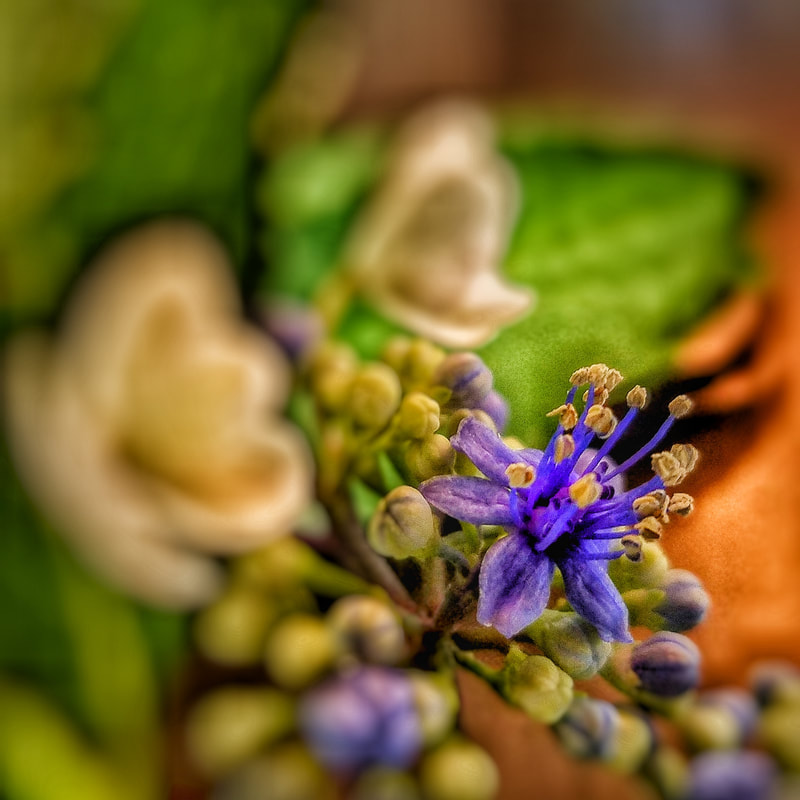

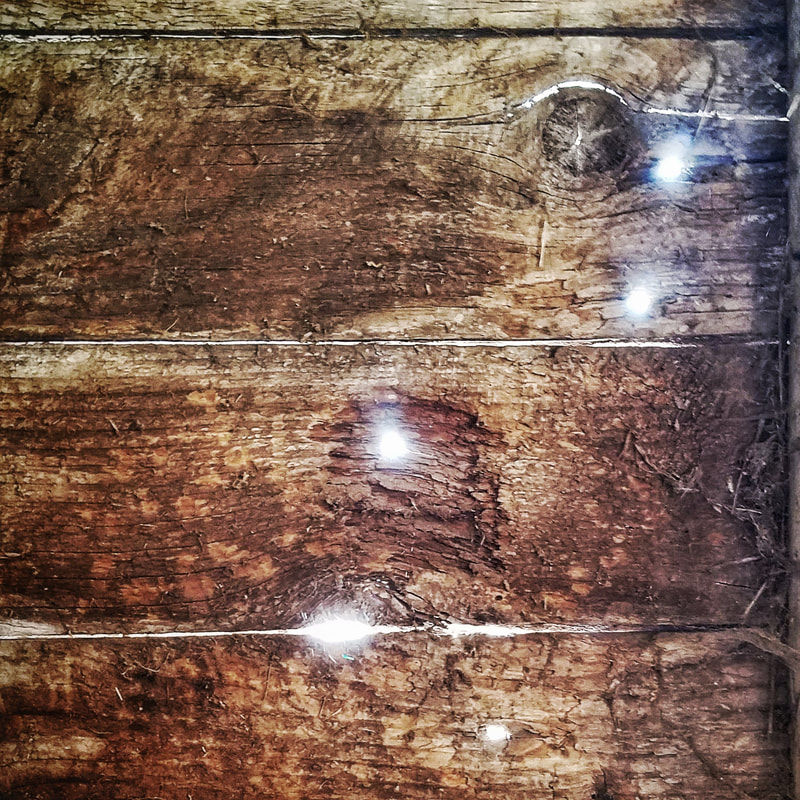
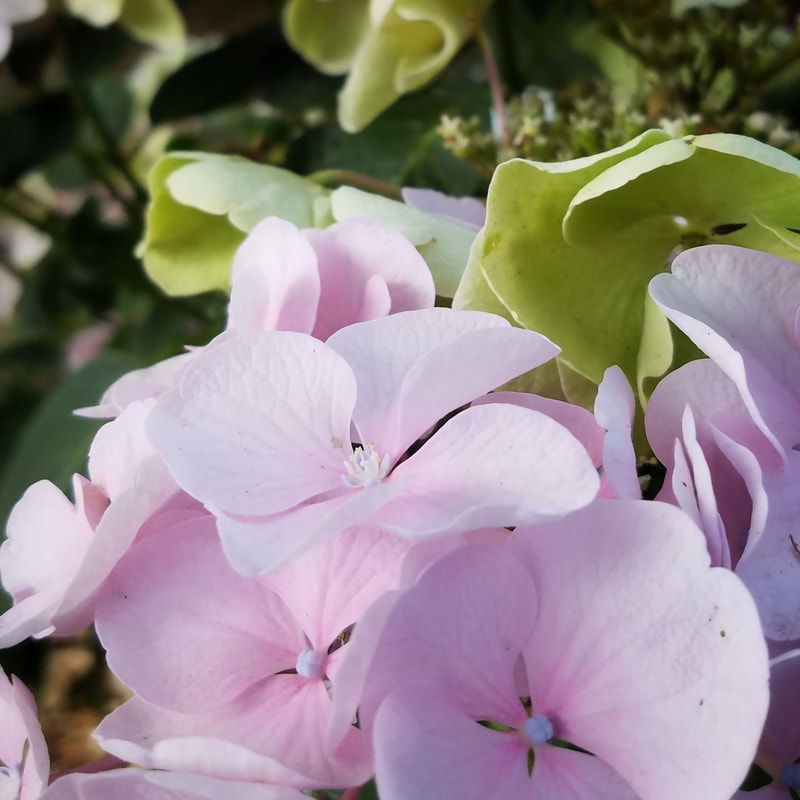
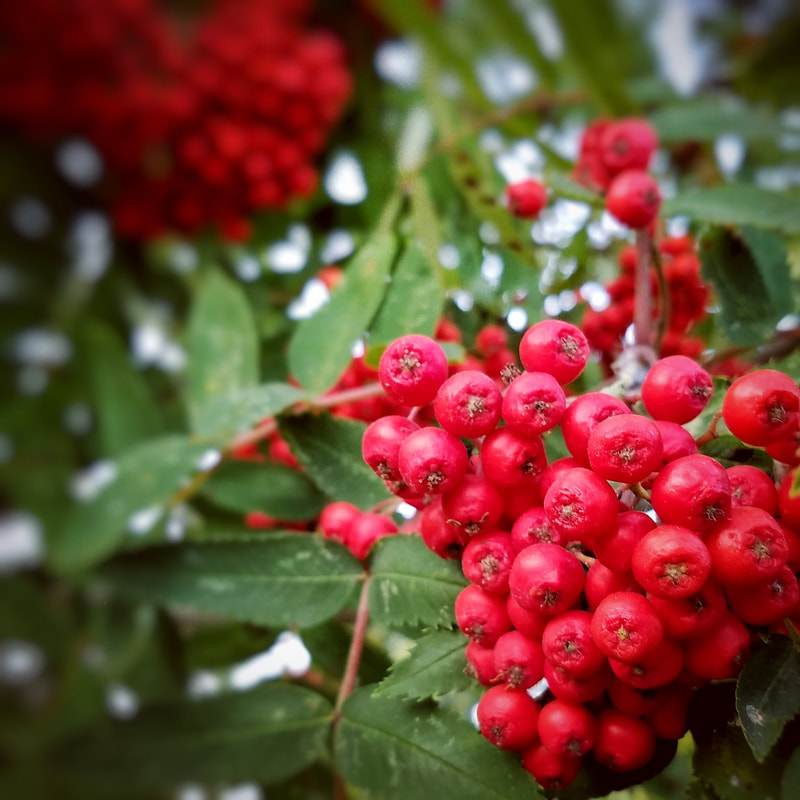
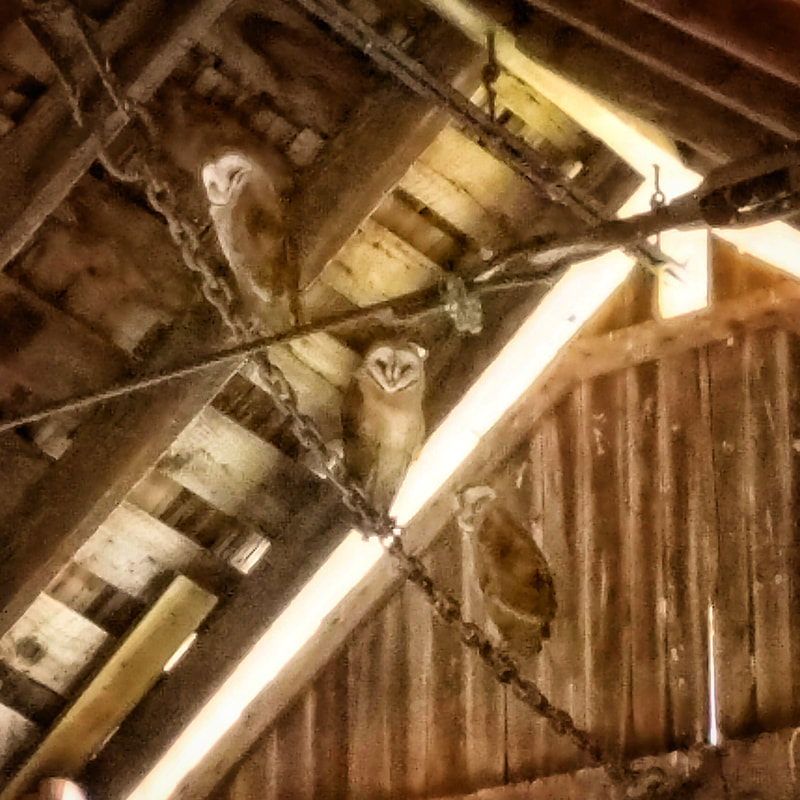
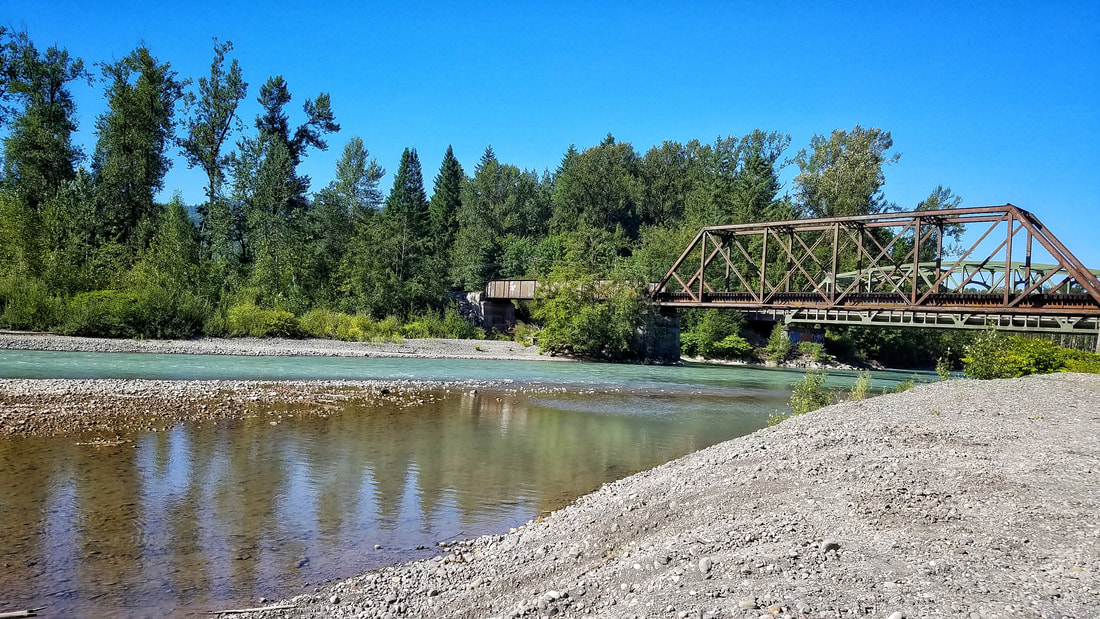
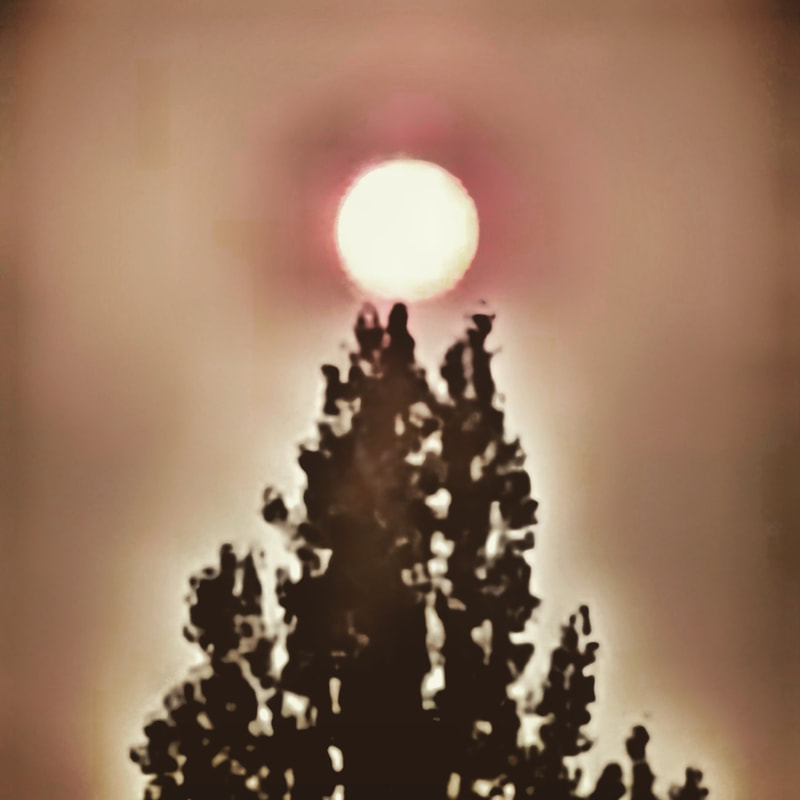
 RSS Feed
RSS Feed